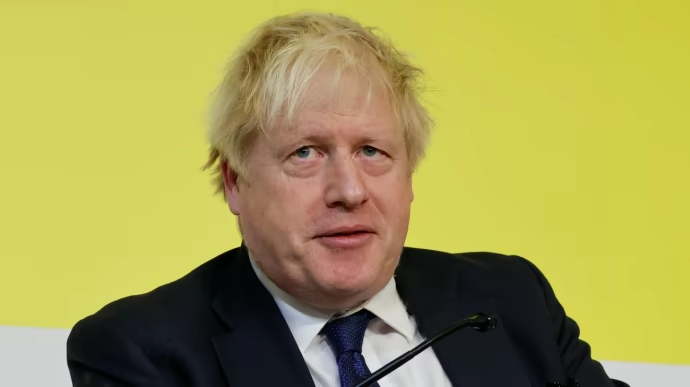Turkey’s Role in Hostage Talks Faces Israeli Opposition
Israel has categorically rejected the possibility of Turkey serving as a mediator in hostage negotiations with Hamas. This stance comes amid rising tensions and unyielding demands from Hamas, which has called for an end to the ongoing Israel-Hamas war before any hostage deal can proceed.
An Israeli source told The Jerusalem Post that Turkey’s involvement is neither sought nor plausible. “I don’t know of any Turkish involvement, and I don’t think there could be,” the source stated.
Currently, Qatar and Egypt are recognized as the primary mediators in these discussions, with support from the United States. However, negotiations remain at a standstill following Hamas’s execution of six hostages, including Israeli-American Hersh Goldberg-Polin, in late August.
Political Shifts Impact Negotiation Dynamics
The recent reelection of Donald Trump as U.S. President has complicated matters for the Biden administration. President Biden’s remaining time in office, set to end on January 20, limits his administration’s ability to leverage significant influence in advancing talks.
Israel recently intensified military efforts with the assassination of Hamas Gaza leader Yahya Sinwar. While this raised brief hopes for resumed negotiations, Hamas has since rejected all proposals, including smaller confidence-building measures.
Hamas Demands End to War Before Negotiations
Hamas insists on a complete cessation of the Israel-Hamas conflict and Israel’s withdrawal from Gaza as preconditions for any deal. Speaking to Sky News, Hamas official Basem Naim said, “We are ready to release all these captured Israelis if they would swap Hamas prisoners in Israeli jails.”
While Israel has resisted halting its military operations, Naim emphasized, “We are ready immediately for a ceasefire to end this war to go for a serious prisoner exchange.”
Qatar, a significant player in past negotiations, has suspended its mediation efforts. The Gulf nation stated that it would only resume participation if both parties demonstrated genuine commitment to reaching an agreement.
Turkey’s Complicated Position
Reports of Hamas leaders relocating to Turkey sparked speculation about Ankara’s potential involvement in mediation efforts. However, a Turkish diplomatic source denied claims that Hamas had moved its political office from Qatar to Turkey, clarifying that group members visit Turkey occasionally but do not operate from there.
Turkey’s relationship with Hamas further complicates its ability to mediate. Unlike many Western nations, Turkey does not classify Hamas as a terrorist organization. President Recep Tayyip Erdogan has vocally criticized Israel’s actions in Gaza and Lebanon, further straining ties with Jerusalem.
Early in the conflict, Erdogan proposed Turkey as a mediator, citing its past role in facilitating talks between Israel and Hamas. However, heightened tensions between Turkey and Israel make this role unlikely.
Mediation Efforts Led by Qatar and Egypt
Qatar and Egypt remain central to current negotiation efforts. U.S. Secretary of State Antony Blinken recently confirmed that Qatar requested Hamas leadership to leave its territory, a move aimed at pressuring the group into meaningful dialogue.
Despite Qatar’s influential role, its leaders argue that hosting Hamas representatives grants them leverage as mediators. Publicly, Qatar has refrained from acknowledging requests for Hamas’s departure.
Egypt, meanwhile, has maintained a steady presence in mediation, balancing its role with its position as a neighboring state directly affected by the conflict.
Challenges Ahead for Hostage Negotiations
The stalemate reflects the broader complexities of the Israel-Hamas conflict. Israel’s continued military operations in Gaza and Hamas’s uncompromising demands hinder progress. The involvement of multiple mediators, including the U.S., Egypt, and Qatar, underscores the need for a unified strategy to address the humanitarian and political crises.
However, without mutual concessions, any resolution seems distant. As talks remain frozen, families of the 101 hostages held by Hamas endure an agonizing wait for news of their loved ones.
Mediation Hurdles Persist
Turkey’s exclusion from mediation efforts highlights the deep mistrust between Ankara and Jerusalem. While Qatar and Egypt continue to play pivotal roles, their progress is limited by entrenched demands on both sides.
As the conflict drags on, the international community faces mounting pressure to facilitate meaningful dialogue and prevent further loss of life. For now, hostages remain at the center of a geopolitical and humanitarian crisis that shows no signs of abating.
related Posts
-
Saudi Crown Prince Condemns Israel’s Actions in Gaza as “Genocide”
-
At Least 40 Killed in Gaza Amid Escalating Israeli Airstrikes
-
U.S. Bombers Deployed to Middle East Amid Mounting Threat of Iranian Attack on Israel











